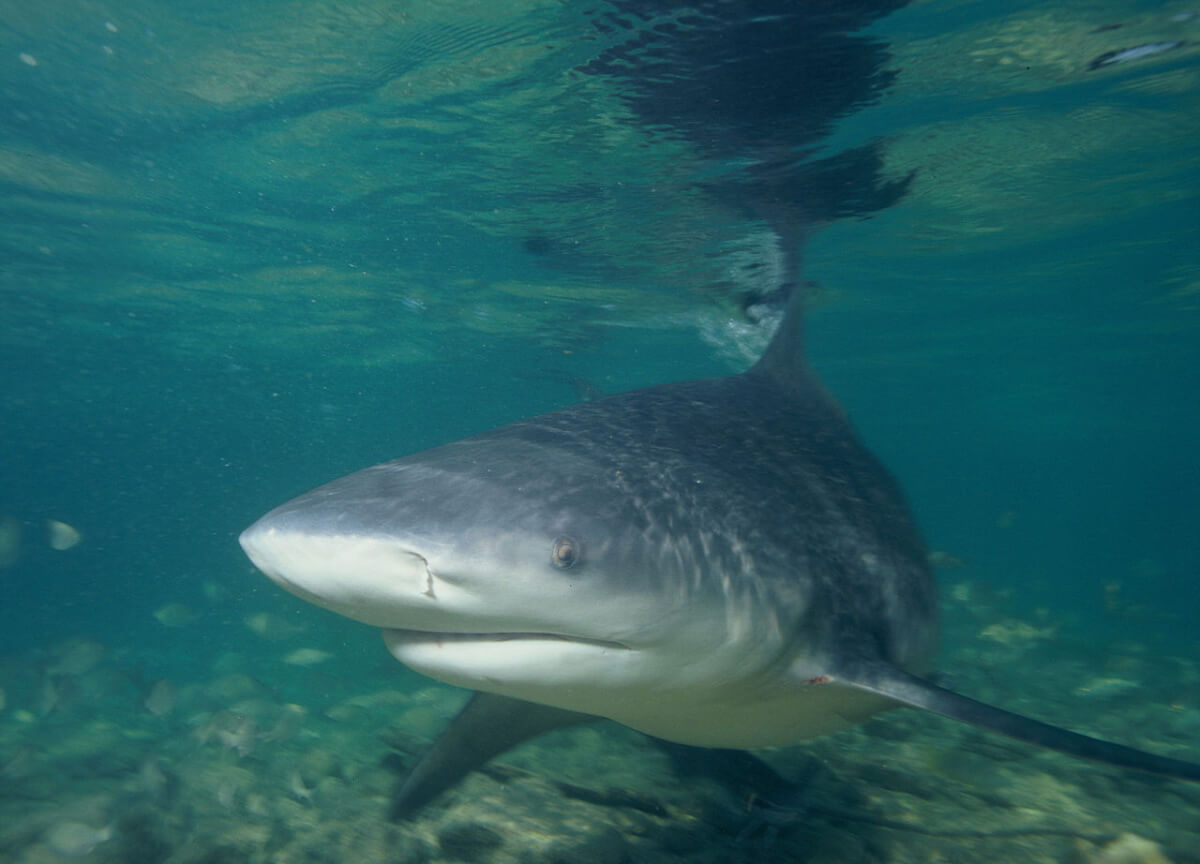North Carolina is experiencing a baby boom, but rather than cute bundles of joy, these babies have teeth: baby bull sharks.
As the weather heats up, the warm waters off the North Carolina coast are attracting bull sharks looking to leave their offspring. Unlike most sharks, bull sharks are known for thriving in warm and shallow waters. They can also survive in brackish and freshwater systems and can travel up hundreds of miles into rivers from estuaries and coasts.
While this is good news for baby bulls, it might be bad news for residents of the Tar Heel state. Like their terrestrial namesake, bull sharks got their name for being aggressive and unpredictable. They are apex predators capable of consuming other large animals such as dolphins and have been known to attack humans. Because they are not as easily identifiable like great whites and tiger sharks, bull sharks are also likely responsible for shark attacks that are attributed to another species.
While bull sharks have been known to travel as far north as Long Island, NY, they’re rather fussy when it comes to where they leave their young. Juvenile bull sharks will stay within the area where they were born for a couple of years until they’re old enough to venture farther out. In warm and less salty waters, a young bull shark will have a higher chance of survival since the environment won’t be as hospitable to other sharks and predators. In the past, their nurseries were limited in areas of the Gulf of Mexico. On the East coast, bull shark nurseries were thought to be limited to portions of the Indian River Lagoon and Cape Canaveral in Florida.

A University of North Carolina study documented the appearance of 113 bull sharks within the state’s waters from 1965 to 2011. There were nine attacks by bull sharks on humans between 1990 and 2011, resulting in one fatality. This is corroborated in the study published in Scientific Reports, where it noted that North Carolina waters were of little use to bull sharks as a nursery in the past. But the new study found that the concentration of juvenile bull sharks has dramatically risen since then, suggesting that increasing water temperature and salinity have allowed bull sharks in the eastern coastline to expand their nursery habitat.
While the young ones are mainly confined within Pamlico Sound, the shift is still seen to bear a potentially strong impact on the local ecosystem and interaction with humans.
Source:




